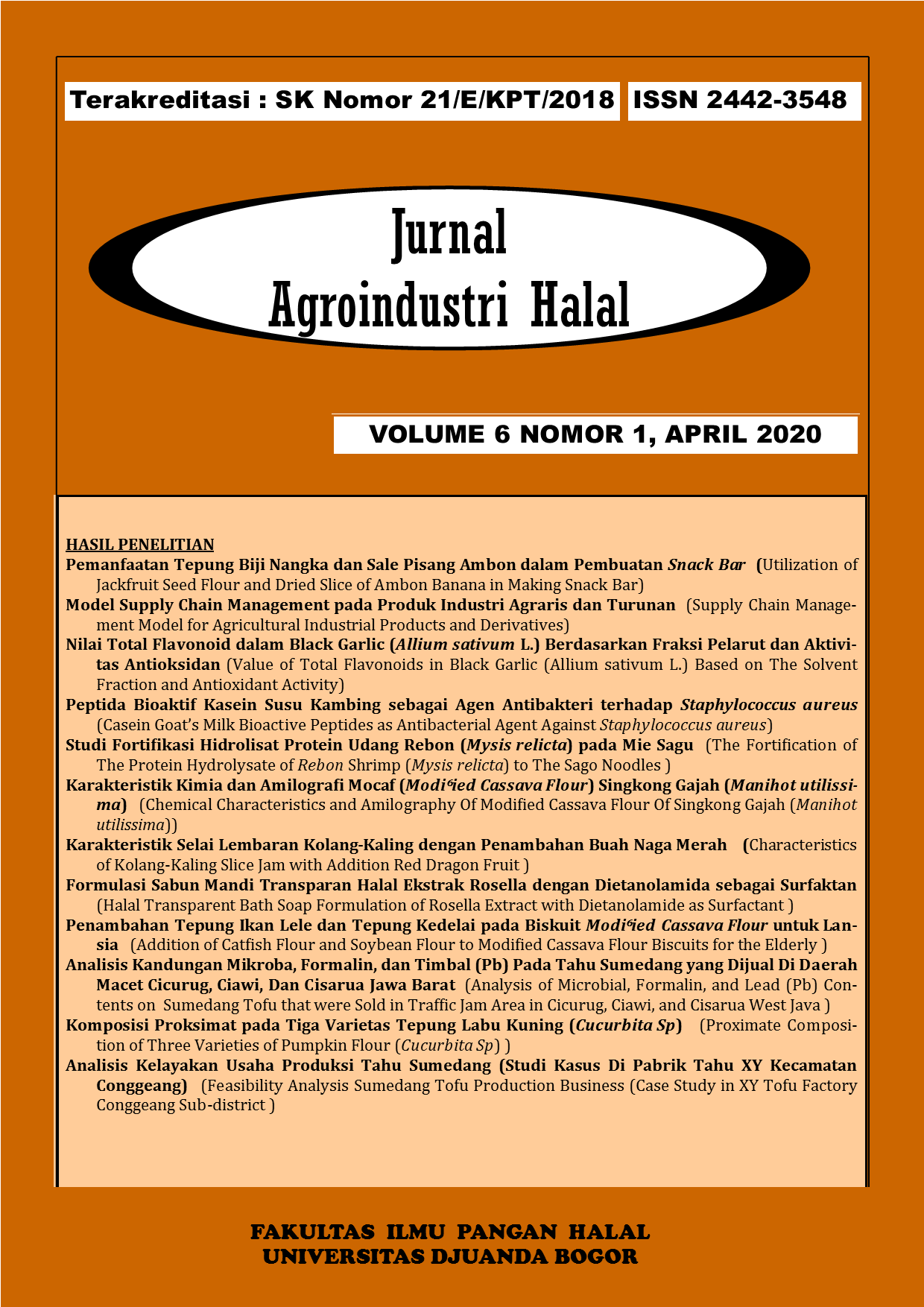Formulasi Sabun Mandi Transparan Halal Ekstrak Rosella dengan Dietanolamida sebagai Surfaktan
DOI:
https://doi.org/10.30997/jah.v6i1.2627Abstract
Rosella flower petals contain anthocyanin dyes which can be used as natural dyes. One of the uses of rosella is to add it to transparent bath soap with dietanolamide as surfactant. Dietanolamide is a surfactant that can function to increase the stability of foam in transparent soap. This study aims to determine the best formulation, characteristics and consumer acceptance of transparent soap with rosella extract with dietanolamide as surfactant. The treatment given in this study is the concentraction of rosella extract by 1%, 2%, and 3%. Whereas for DEA is 1% and 3%. Observations made on transparent soap include physicochemical tests of soap, organoleptic tests, and statistical tests with ANOVA variance. The results of the analysis show that all formulations do not meet the requirements of SNI 06-3532-1994. Except for pH, foam stability, and emulsion stability. Organoleptic results (shape, color, transparency, lots of foam, and impression of fatigue) showed that panelists liked formulation 2 with the addition of 2% roselle extract and 1% dietanolamide.
Keywords: Transparent soap, rosella extract, dietanolamideDownloads
Published
How to Cite
Issue
Section
License
Copyright (c) 2020 JURNAL AGROINDUSTRI HALAL

This work is licensed under a Creative Commons Attribution-ShareAlike 4.0 International License.
Authors who publish with Jurnal Agroindustri Halal agree to the following terms:
- Authors retain copyright and grant the journal right of first publication with the work simultaneously licensed under a Creative Commons Attribution 4.0 International License that allows others to share the work with an acknowledgement of the work's authorship and initial publication in Jurnal Agroindustri Halal.
- Authors are able to enter into separate, additional contractual arrangements for the non-exclusive distribution of the journal's published version of the work (e.g., post it to an institutional repository or publish it in a book), with an acknowledgement of its initial publication in Jurnal Agroindustri Halal.
- Authors are permitted and encouraged to post their work online (e.g., in institutional repositories or on their website) prior to and during the submission process, as it can lead to productive exchanges, as well as earlier and greater citation of published work








